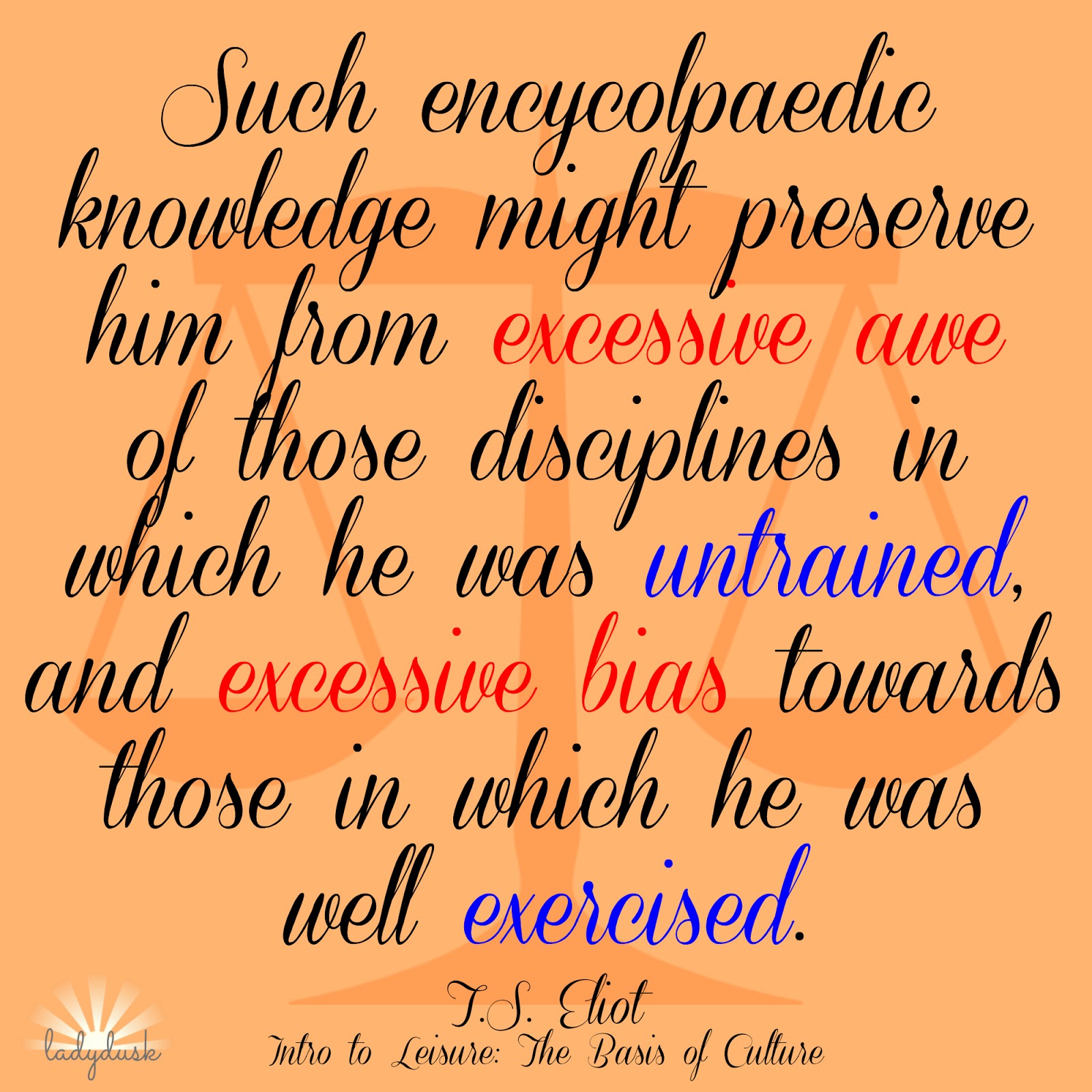Wednesdays with Words: Excessive Awe; Excessive Bias

Jason and I are reading Josef Pieper’s Leisure: The Basis of Culture together.
This is a book I ordered for one of Cindy Rollins’s book club lo these many years ago but never read. I finally got it into my head that I really ought to did want to read it and the most likely way I’d accomplish that was to read it with Jason.
Or to him. Whatever. Just so we can talk about it and stuff. He’s much better at hearing and learning than I am. I’m pretty good at reading and learning, but I take notes because ideas have to enter my mind through my eyes or I don’t Attend! to them well.
Anyway.
When I ordered the book – lo those many years ago – I ordered a used copy. It was probably cheap. My copy is the Alexander Dru translation which has its detractors and supporters. But, it is a 1952 copyright and has an introduction by T.S. Eliot.
Yes, that T.S. Eliot.
I read that part to Jason first.
I think I’ve mentioned here that I’ve been thinking about the ideas of specialization and generalization a lot (my schole group all just groaned) and how that fits with multa non multum and Charlotte Mason’s grand feast. I plan to write more in detail about that some other time.
In Eliot’s introduction, he comes close to touching upon it and those words are ones I’ve been considering for a couple of weeks, now (if you follow me on Instagram, you’ve likely seen it … )
Now I am quite aware that to the philosopher no field of knowledge should come amiss. The ideal philosopher would be at ease with every science, with every branch of art, with every language, and with the whole of human history. Such encyclopaedic knowledge might preserve him from excessive awe of those disciplines in which he was untrained and excessive bias towards those in which he was well exercised. But in an age in which every branch of study becomes more subdivided and specialized, the ideal of omniscience is more and more remote from realization. Yet only omnicscience is enough, once the philosopher begins to reply upon science. (T.S. Eliot, pg 13)
Wow. Every time I read it, I think about how carefully crafted this is. Look how he balances excessive awe and bias. How he shows the modern over-reliance on science to bring about the necessary omniscience to rely upon science. How he shows that the more specialized fields of study become, the less we can generalize. Oh, you can read it, he says it better than I.
He goes on to continue describing the way that philosophy as a study has become marginalized in our day is not simply because of this minute specialization but also because philosophy has become unconnected to it’s partner: theology.
The root cause of the vagaries of modern philosophy — and perhaps, thouh I was unconscious of it [as a student], the reason for my dissatisfaction with philosophy as a profession — I now believe to lie in the divorce of philosophy from theology.
Only God is omniscient – only God can specialize in everything – yet because He does have that complete knowledge, and philosophy has thrown him aside, science becomes a god in His place and philosophy itself becomes unsatisfactory in T.S.Eliot’s view.
I think we can leave the high thinking aside and consider how this affects us in our homeschools. We may not give precise, minute, specialized knowledge. We may not give our students a complete ‘encyclopaedic knowledge,’ but we certainly wish to ‘preserve from excessive awe … and …. excessive bias.”
I lean toward the feast.

‘);
